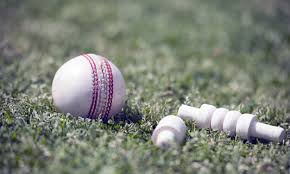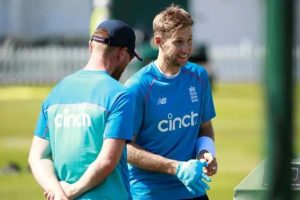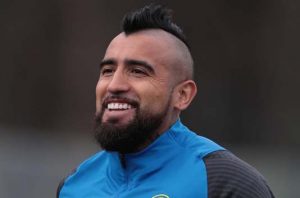Dhaka – Bangladesh cricket on Monday saw the 2nd strike in 20 years as the country’s top cricketers in a sudden move announced to boycott all cricketing activities at home and aboard if Bangladesh Cricket Board (BCB) does not meet their 11-point demand immediately.
They made the announcement in a press conference at the National Cricket Academy Ground in Mirpur.
The demands include immediate resignation of the president and secretary of Cricket Welfare Association of Bangladesh (CWAB), returning to the previous model of Dhaka League, and the BPL from the next year, increasing the match fee in the first-class cricket to 1 lakh from present Tk 35,000, hiking the salaries of the national cricketers, local coaches, physios, trainers and groundsmen, arranging more domestic cricket events, fixing stable domestic calendar, clearing cricketers’ dues for the Dhaka League and ensuring cricketers’ opportunities to play more foreign leagues.
Meanwhile, BCB President Nazmul Hasan on Tuesday said some people are conspiring to destroy the image of Bangladesh cricket abroad and instigating the country’s top cricketers to stand against the board.
He came up with the remark at an emergency press conference at Sher-e-Bangla National Stadium in the city following a meeting of the board of directors.
The first and biggest strike in Bangladesh cricket was staged in November 1999, just few months before getting the Test status in 2000, as the country’s top cricketers called their first-ever strike demanding players’ transfer for the Dhaka League before launching the National Cricket League.
The Dhaka League was the main source of earnings for the cricketers at that time.
The first-ever National Cricket League (NCL) took place in November 1999 and the domestic cricket season was scheduled to start from February 2000 with the Dhaka League. In that situation, cricketers asked the BCB to complete the players’ transfer formalities of the Dhaka League before the start of the NCL.
But, the BCB refused to meet the demand which eventually prompted the cricketers to go on the strike. Despite that, the BCB declined to give in to the demand. They rather took steps to ban the cricketers like Aminul Islam Bulbul, Minhajul Abedin Nannu, Enamul Haque, Mohammad Rafique and Faruk Ahmed.
Due to the strike, the top cricketers skipped the first round of the maiden NCL in 1999. However, they returned to action in the second round of the league ending their strike.
The BCB banned a group of national cricketers, including captain Habibul Bashar Sumon, in 2008 for playing in the Indian Cricket League (ICL).
Strikes by cricketers over discontent with the cricket boards are nothing new in the cricketing world.
In 2017, the Cricket Australia (CA) had axed all the cricketers who were in the central contract because of their stand against CA which made their Bangladesh tour uncertain.
After a long discussion between CA and Australian Cricketers’ Association (ACA), the dispute was resolved and Australia toured Bangladesh under the new central contract.
Cricketers’ strike is also like a regular activity in Zimbabwe and West Indies. Both of these boards often struggle to make their players unite under the board’s regulation.
However, the BCB is trying to handle the situation with immense caution, although they overlooked a director- Ahmed Sajjadul Alam Bobby- in an urgent board meeting after the strike. Ahmed was the only board director who raised his voice in favour of the cricketers on the day of the strike which might have prompted BCB to overlook him in the meeting.UNB




